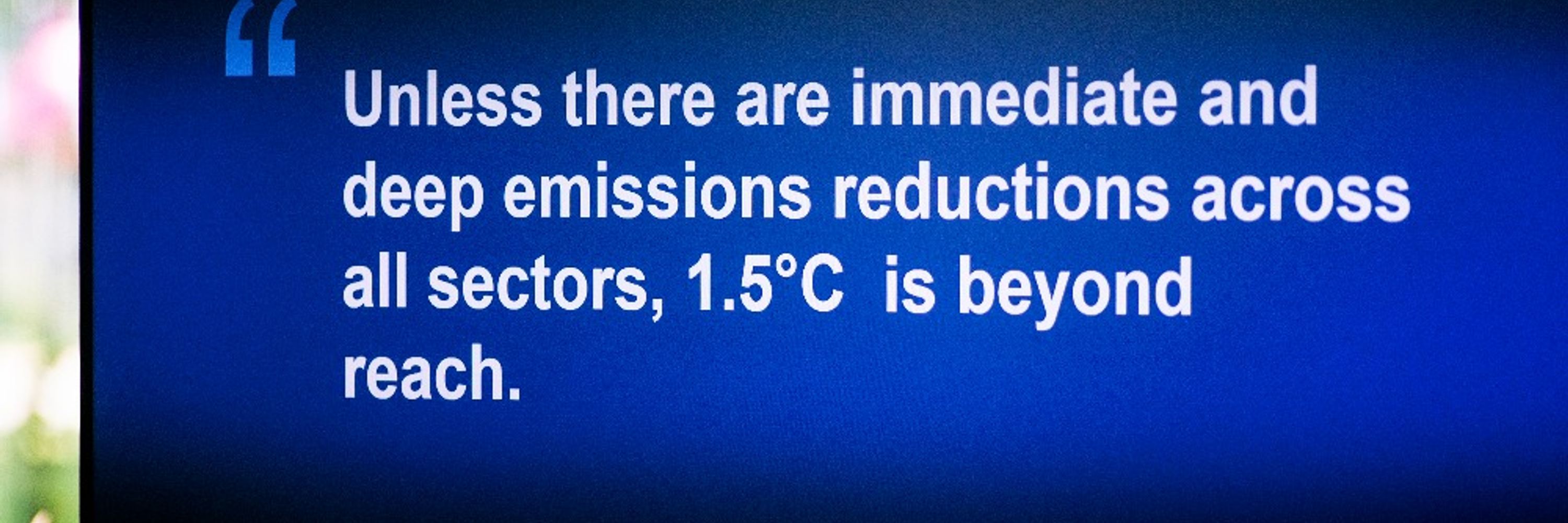
Kornelis Blok
@kornelis.bsky.social
Speeding up the energy transition
Professor Energy Systems @TU-Delft
Lead author @IPCC @UNEP Gap Report
Chairman Technical Council @SBTi
Scientific Climate Council @NL
Energy coach @Houten
#energysky #climatesky
www.kornelis.blog
Professor Energy Systems @TU-Delft
Lead author @IPCC @UNEP Gap Report
Chairman Technical Council @SBTi
Scientific Climate Council @NL
Energy coach @Houten
#energysky #climatesky
www.kornelis.blog
The 1.5˚C target remains a critical objective - even if we are on the way to exceed it. Important paper by Rogelj and Rajamani: www.science.org/doi/10.1126/...

July 30, 2025 at 10:17 AM
The 1.5˚C target remains a critical objective - even if we are on the way to exceed it. Important paper by Rogelj and Rajamani: www.science.org/doi/10.1126/...
So far, 2025 is a very warm year, despite the dissipation of El Nino. Data for March: berkeleyearth.org/march-2025-t...

April 19, 2025 at 9:34 AM
So far, 2025 is a very warm year, despite the dissipation of El Nino. Data for March: berkeleyearth.org/march-2025-t...
Evaluation of our series of online courses "Designing a Climate-Neutral World":
learners are very positive (scale from 0 tot 10) 👇
learners are very positive (scale from 0 tot 10) 👇

February 20, 2025 at 2:13 PM
Evaluation of our series of online courses "Designing a Climate-Neutral World":
learners are very positive (scale from 0 tot 10) 👇
learners are very positive (scale from 0 tot 10) 👇
A lot of interesting stuff - this one 👇 struck me most:
China moves from very low levels to about 50% sales share of electric vehicles within 5 years (including PHEV).
Are they ready for 100% by 2030?
Could the rest of the world repeat that?
China moves from very low levels to about 50% sales share of electric vehicles within 5 years (including PHEV).
Are they ready for 100% by 2030?
Could the rest of the world repeat that?

January 30, 2025 at 7:09 PM
A lot of interesting stuff - this one 👇 struck me most:
China moves from very low levels to about 50% sales share of electric vehicles within 5 years (including PHEV).
Are they ready for 100% by 2030?
Could the rest of the world repeat that?
China moves from very low levels to about 50% sales share of electric vehicles within 5 years (including PHEV).
Are they ready for 100% by 2030?
Could the rest of the world repeat that?
This year will be a challenging and critical year for fighting climate change. But there is no reason to lose hope. My new blog: kornelisblok.home.blog?p=496&previe....
Wishing you all the best and that you all may contribute!
#climatepolicy #climate
Wishing you all the best and that you all may contribute!
#climatepolicy #climate

January 1, 2025 at 10:16 AM
This year will be a challenging and critical year for fighting climate change. But there is no reason to lose hope. My new blog: kornelisblok.home.blog?p=496&previe....
Wishing you all the best and that you all may contribute!
#climatepolicy #climate
Wishing you all the best and that you all may contribute!
#climatepolicy #climate
The Netherlands Scientific Climate Council published an advice on Climate and Agriculture this week. Main elements:
1) Establish clear environmental targets.
2) Ask farmers how they prefer to achieve these targets.
3) Establish a market for sustainable products (e.g. through blending obligation) /1
1) Establish clear environmental targets.
2) Ask farmers how they prefer to achieve these targets.
3) Establish a market for sustainable products (e.g. through blending obligation) /1
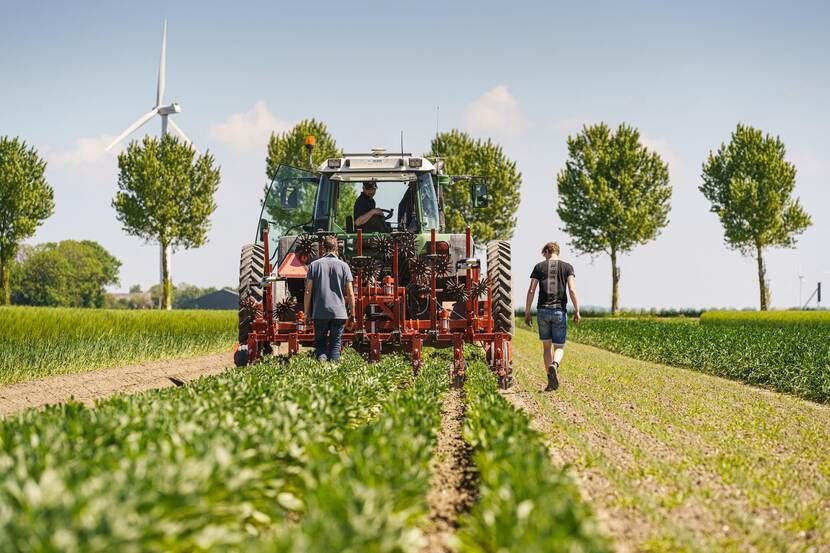
December 13, 2024 at 1:55 PM
The Netherlands Scientific Climate Council published an advice on Climate and Agriculture this week. Main elements:
1) Establish clear environmental targets.
2) Ask farmers how they prefer to achieve these targets.
3) Establish a market for sustainable products (e.g. through blending obligation) /1
1) Establish clear environmental targets.
2) Ask farmers how they prefer to achieve these targets.
3) Establish a market for sustainable products (e.g. through blending obligation) /1
You can start anytime. Each course requires 4-6 hours per week for 4 weeks. You can follow the courses free of charge, but we charge a fee if you wish to receive a certificate.

December 11, 2024 at 8:51 AM
You can start anytime. Each course requires 4-6 hours per week for 4 weeks. You can follow the courses free of charge, but we charge a fee if you wish to receive a certificate.
Monthly.
Here is the source: ember-energy.org/data/electri...
Here is the source: ember-energy.org/data/electri...

December 3, 2024 at 4:34 PM
Monthly.
Here is the source: ember-energy.org/data/electri...
Here is the source: ember-energy.org/data/electri...
Economist Henri de Groot is appointed as member of the Netherlands Scientific Climate Council. Welcome, Henri! www.wkr.nl/over-de-wkr/...
#climatepolitics
#climatepolitics
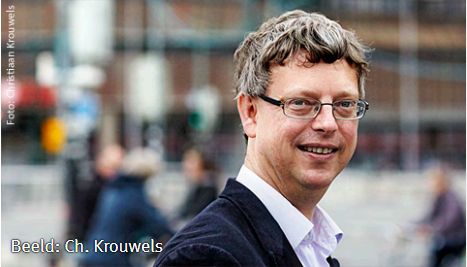
December 3, 2024 at 4:29 PM
Economist Henri de Groot is appointed as member of the Netherlands Scientific Climate Council. Welcome, Henri! www.wkr.nl/over-de-wkr/...
#climatepolitics
#climatepolitics
University campuses seem to be the perfect place to carry out living lab experiments. But, alas, it is not that simple ...
New article by Annika Herth explores the challenges and opportunities. doi.org/10.1111/caim... #energysky
New article by Annika Herth explores the challenges and opportunities. doi.org/10.1111/caim... #energysky

November 28, 2024 at 9:35 AM
University campuses seem to be the perfect place to carry out living lab experiments. But, alas, it is not that simple ...
New article by Annika Herth explores the challenges and opportunities. doi.org/10.1111/caim... #energysky
New article by Annika Herth explores the challenges and opportunities. doi.org/10.1111/caim... #energysky
The net metering scheme will end in 2027. Interim, energy companies charge typically 10 c/kWh for feed-in. This decreases the annual benefits for PV system owners from average €988 to €472. This should be compared with installation costs of €5000 (10 panels). Full details in article (Dutch) /2

November 21, 2024 at 8:45 AM
The net metering scheme will end in 2027. Interim, energy companies charge typically 10 c/kWh for feed-in. This decreases the annual benefits for PV system owners from average €988 to €472. This should be compared with installation costs of €5000 (10 panels). Full details in article (Dutch) /2
The pay-back time of household solar PV systems in the Netherlands doubles from 5 to 10 years due to energy companies' introduction of feed-in charges.
Companies try to avoid the negative impact of the existing net metering scheme. Nice overview here: www.nu.nl/tech/6335866.... /1
Companies try to avoid the negative impact of the existing net metering scheme. Nice overview here: www.nu.nl/tech/6335866.... /1

November 21, 2024 at 8:45 AM
The pay-back time of household solar PV systems in the Netherlands doubles from 5 to 10 years due to energy companies' introduction of feed-in charges.
Companies try to avoid the negative impact of the existing net metering scheme. Nice overview here: www.nu.nl/tech/6335866.... /1
Companies try to avoid the negative impact of the existing net metering scheme. Nice overview here: www.nu.nl/tech/6335866.... /1
We also re-analysed the 2030 potential.
An important conclusion is: although the mitigation potential is decreasing we can still bridge the gap to 1.5 °C in 2030. Way too early to declare 1.5 °C to be dead! Solar, wind, reduced deforestation and af/reforestation can bridge nearly half of the gap.
An important conclusion is: although the mitigation potential is decreasing we can still bridge the gap to 1.5 °C in 2030. Way too early to declare 1.5 °C to be dead! Solar, wind, reduced deforestation and af/reforestation can bridge nearly half of the gap.

November 19, 2024 at 9:56 AM
We also re-analysed the 2030 potential.
An important conclusion is: although the mitigation potential is decreasing we can still bridge the gap to 1.5 °C in 2030. Way too early to declare 1.5 °C to be dead! Solar, wind, reduced deforestation and af/reforestation can bridge nearly half of the gap.
An important conclusion is: although the mitigation potential is decreasing we can still bridge the gap to 1.5 °C in 2030. Way too early to declare 1.5 °C to be dead! Solar, wind, reduced deforestation and af/reforestation can bridge nearly half of the gap.
And last but not least: industry.
Here 'circular economy' options, like material efficiency and enhanced recycling are emerging, next to fuel switching and alternative feedstock and production processes. A huge sector that deserves more policy attention.
Here 'circular economy' options, like material efficiency and enhanced recycling are emerging, next to fuel switching and alternative feedstock and production processes. A huge sector that deserves more policy attention.

November 19, 2024 at 9:56 AM
And last but not least: industry.
Here 'circular economy' options, like material efficiency and enhanced recycling are emerging, next to fuel switching and alternative feedstock and production processes. A huge sector that deserves more policy attention.
Here 'circular economy' options, like material efficiency and enhanced recycling are emerging, next to fuel switching and alternative feedstock and production processes. A huge sector that deserves more policy attention.
And then transport. Again a variety of options here. Note that more than in earlier assessments we included demand-side options, like shift to biking and public transport and reduced flying. Electric vehicles seem to be small, but there is already a lot in the baseline reference.

November 19, 2024 at 9:56 AM
And then transport. Again a variety of options here. Note that more than in earlier assessments we included demand-side options, like shift to biking and public transport and reduced flying. Electric vehicles seem to be small, but there is already a lot in the baseline reference.
We are moving to the energy end-use sectors, first of all the building sector. In all these sectors we have three type of options: 1) doing things differently (here: more rational use of buildings); 2) energy efficiency; 3) low-carbon energy supply.

November 19, 2024 at 9:56 AM
We are moving to the energy end-use sectors, first of all the building sector. In all these sectors we have three type of options: 1) doing things differently (here: more rational use of buildings); 2) energy efficiency; 3) low-carbon energy supply.
In the land sector the major options are: reducing deforestation, afforestation/reforestation and improved forestry management. In agriculture, carbon storage in soil is a big one. Demand side options, like reducing food waste and dietary change can also contribute substantially.

November 19, 2024 at 9:56 AM
In the land sector the major options are: reducing deforestation, afforestation/reforestation and improved forestry management. In agriculture, carbon storage in soil is a big one. Demand side options, like reducing food waste and dietary change can also contribute substantially.
A background report provides more details. The potential in the electricity sector is dominated by wind and solar energy - but other technologies can contribute as well. And don't overlook the possibilities to reduce methane emissions from coal, oil and gas operations.

November 19, 2024 at 9:56 AM
A background report provides more details. The potential in the electricity sector is dominated by wind and solar energy - but other technologies can contribute as well. And don't overlook the possibilities to reduce methane emissions from coal, oil and gas operations.
My first thread on Bluesky 😀
What is the global GHG mitigation potential in 2035? A very relevant question for the upcoming round of NDCs. We analysed it for the 2024 UNEP Emissions Gap Report (Ch. 6).
Conclusion: the mitigation potential is more than enough to bridge the 2035 emissions gap.
What is the global GHG mitigation potential in 2035? A very relevant question for the upcoming round of NDCs. We analysed it for the 2024 UNEP Emissions Gap Report (Ch. 6).
Conclusion: the mitigation potential is more than enough to bridge the 2035 emissions gap.

November 19, 2024 at 9:56 AM
My first thread on Bluesky 😀
What is the global GHG mitigation potential in 2035? A very relevant question for the upcoming round of NDCs. We analysed it for the 2024 UNEP Emissions Gap Report (Ch. 6).
Conclusion: the mitigation potential is more than enough to bridge the 2035 emissions gap.
What is the global GHG mitigation potential in 2035? A very relevant question for the upcoming round of NDCs. We analysed it for the 2024 UNEP Emissions Gap Report (Ch. 6).
Conclusion: the mitigation potential is more than enough to bridge the 2035 emissions gap.
How can living labs on university campuses contribute to the energy transition?
PhD thesis by Annika Herth now online:
repository.tudelft.nl/record/uuid:... --> defense will be on 4 December. #EnergySky
PhD thesis by Annika Herth now online:
repository.tudelft.nl/record/uuid:... --> defense will be on 4 December. #EnergySky
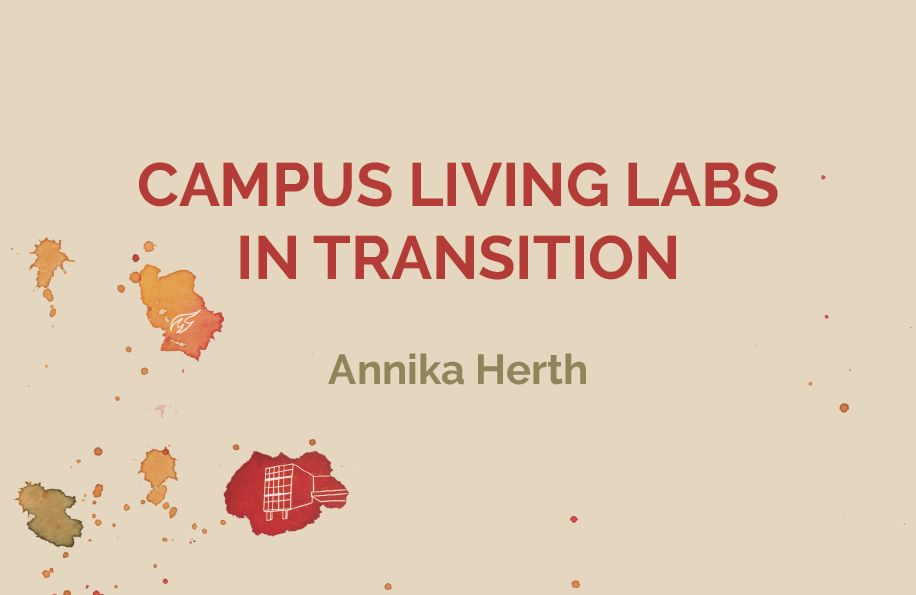
November 18, 2024 at 8:30 AM
How can living labs on university campuses contribute to the energy transition?
PhD thesis by Annika Herth now online:
repository.tudelft.nl/record/uuid:... --> defense will be on 4 December. #EnergySky
PhD thesis by Annika Herth now online:
repository.tudelft.nl/record/uuid:... --> defense will be on 4 December. #EnergySky
Mitigation has reached the coffee machines of our university TU Delft. Part of our efforts to tackle our Scope 3 emissions. #climatesky
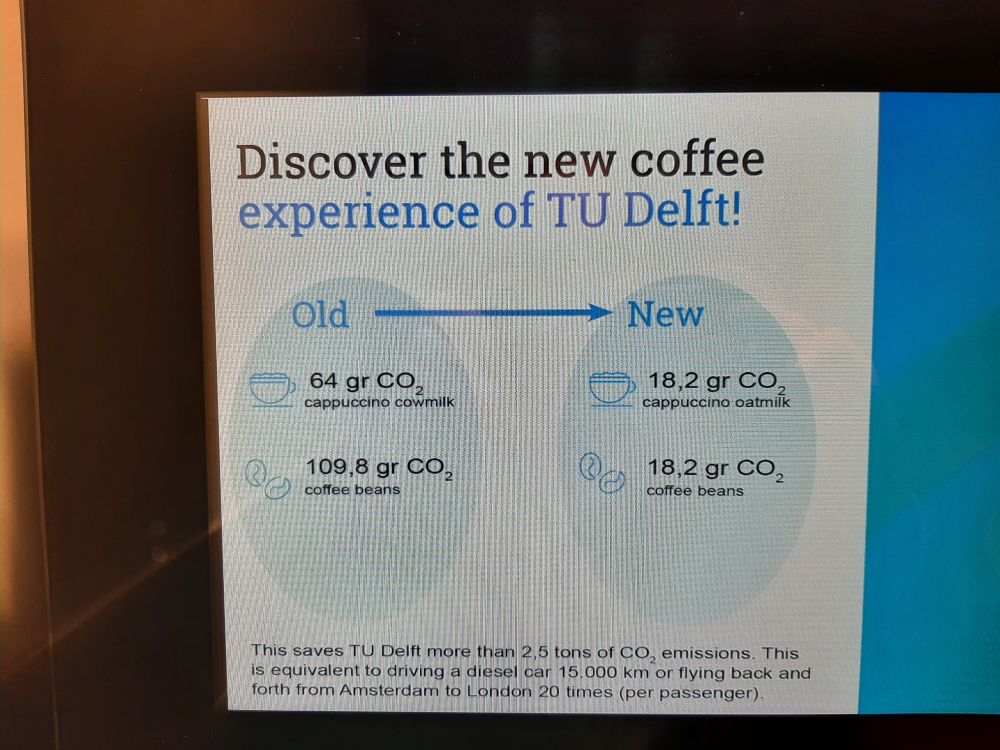
November 13, 2024 at 3:11 PM
Mitigation has reached the coffee machines of our university TU Delft. Part of our efforts to tackle our Scope 3 emissions. #climatesky
Along with the UNEP Emissions Gap Report, a background report was published with details on all 2035 mitigation options. Details for the energy sector 👇
More here: unepccc.org/wp-content/u...
More here: unepccc.org/wp-content/u...

October 28, 2024 at 7:36 AM
Along with the UNEP Emissions Gap Report, a background report was published with details on all 2035 mitigation options. Details for the energy sector 👇
More here: unepccc.org/wp-content/u...
More here: unepccc.org/wp-content/u...
Prize for the best summary of the 2024 Emissions Gap Report is for the New York Times:
www.nytimes.com/2024/10/24/c...
www.nytimes.com/2024/10/24/c...

October 26, 2024 at 8:38 AM
Prize for the best summary of the 2024 Emissions Gap Report is for the New York Times:
www.nytimes.com/2024/10/24/c...
www.nytimes.com/2024/10/24/c...
In this new article in Policy Sciences, Rory Hooper,
Nihit Gohal, Lisa Scholten, and I propose a semi-automated approach for synthesising policy-relevant evidence.
We use natural language processing, causal mapping, and graph analytics. Case study on ETS.
Open access: tinyurl.com/mr46tx22
Nihit Gohal, Lisa Scholten, and I propose a semi-automated approach for synthesising policy-relevant evidence.
We use natural language processing, causal mapping, and graph analytics. Case study on ETS.
Open access: tinyurl.com/mr46tx22
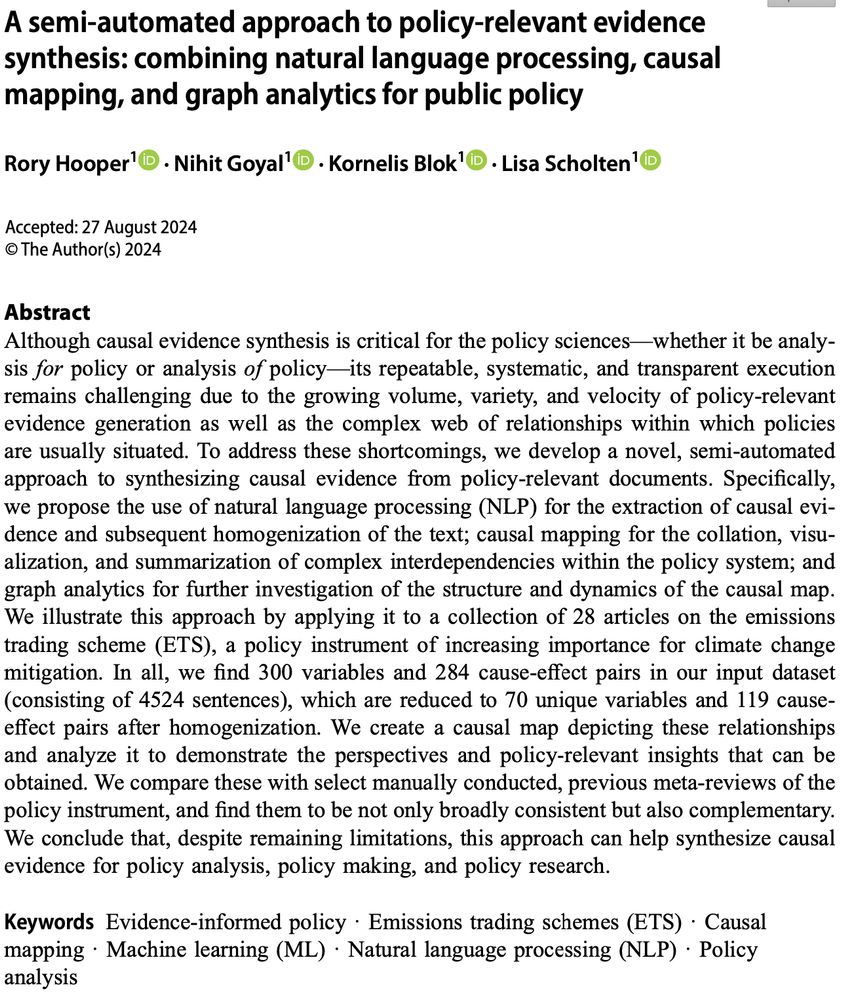
October 3, 2024 at 7:07 PM
In this new article in Policy Sciences, Rory Hooper,
Nihit Gohal, Lisa Scholten, and I propose a semi-automated approach for synthesising policy-relevant evidence.
We use natural language processing, causal mapping, and graph analytics. Case study on ETS.
Open access: tinyurl.com/mr46tx22
Nihit Gohal, Lisa Scholten, and I propose a semi-automated approach for synthesising policy-relevant evidence.
We use natural language processing, causal mapping, and graph analytics. Case study on ETS.
Open access: tinyurl.com/mr46tx22
Spinoza award, the highest scientific prize in the Netherlands for Detlef van Vuuren. Very much deserved for this champion of modelling low-carbon futures!

October 2, 2024 at 1:52 PM
Spinoza award, the highest scientific prize in the Netherlands for Detlef van Vuuren. Very much deserved for this champion of modelling low-carbon futures!

